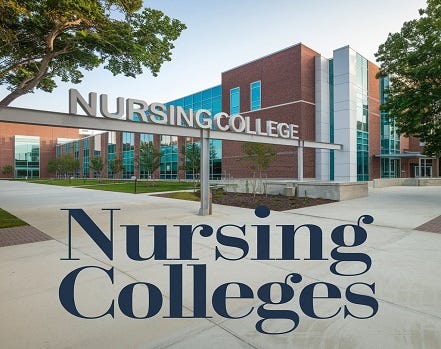Education Insider Magazine | Top Nursing Colleges
 john campbell
john campbell
Introduction
As healthcare systems worldwide grow more complex, the demand for highly trained and compassionate nurses continues to rise. Nursing colleges play a pivotal role in preparing the next generation of healthcare professionals who are not only skilled in clinical practice but also capable of adapting to rapidly changing medical environments. These institutions are the foundation of a strong healthcare infrastructure, ensuring that nurses are equipped with the knowledge, ethics, and empathy essential for patient care.
The Role of Nursing Colleges
Nursing colleges offer specialized education that combines theoretical knowledge with hands-on clinical experience. These institutions are responsible for training students in various disciplines such as anatomy, pharmacology, patient care, ethics, and public health.
Most programs include:
Diploma in Nursing
Bachelor of Science in Nursing (B.Sc Nursing)
Post Basic B.Sc Nursing
Master of Science in Nursing (M.Sc Nursing)
Ph.D. in Nursing and other research opportunities
Each level builds on prior knowledge, offering deeper specialization and opening doors to more advanced career roles, such as nurse practitioners, educators, and healthcare administrators.

Admission and Curriculum
Admission criteria may vary by country and institution but generally require completion of higher secondary education with a science background. Some colleges also conduct entrance exams or consider national-level test scores.
The curriculum is typically a blend of:
Core medical sciences (like microbiology, physiology)
Nursing-specific subjects (like pediatric nursing, mental health nursing)
Clinical training in hospitals and community health settings
This well-rounded approach ensures graduates are ready to face real-world challenges.
Importance of Accreditation and Infrastructure
Choosing an accredited nursing college is crucial. Accreditation ensures that the curriculum meets industry standards and that students are eligible for licensing exams. Additionally, top nursing colleges often feature:
Well-equipped laboratories
Affiliated teaching hospitals
Simulation centers
Experienced faculty
Such infrastructure fosters a professional learning environment and helps students gain practical confidence.
Career Prospects for Graduates
Graduates from reputable nursing colleges have a wide array of career paths:
Hospital Nursing
Community Health
Military or Government Services
Academic and Research Roles
International Nursing Opportunities
With growing global demand, especially in countries facing nursing shortages, the career outlook is strong and often includes opportunities for further education and immigration.
Challenges and the Way Forward
Despite their importance, many nursing colleges, particularly in developing regions, face challenges such as underfunding, faculty shortages, and outdated curricula. Addressing these issues requires coordinated efforts from governments, regulatory bodies, and private institutions.
Investment in nursing education, adoption of technology in teaching, and improved industry-academic collaboration are key to strengthening these institutions and, by extension, healthcare delivery.
Conclusion
Nursing colleges are more than just educational institutions — they are the incubators of tomorrow’s healthcare heroes. By providing rigorous training, ethical grounding, and compassionate values, they prepare students to meet the evolving demands of patient care. As the world leans increasingly on medical professionals, strengthening nursing education must remain a global priori
Subscribe to my newsletter
Read articles from john campbell directly inside your inbox. Subscribe to the newsletter, and don't miss out.
Written by
